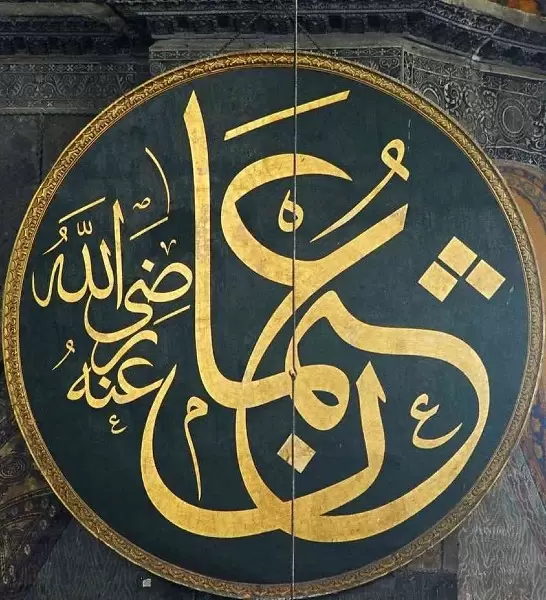
06 February, 2025
Uthman ibn Affan, the third caliph of Islam, was a leader of wisdom, generosity, and faith. His reign marked a golden era of expansion, unity, and the preservation of the Quran in a single written form. Known for his immense wealth, he spent generously in the service of Islam, earning him the title "Al-Ghani" (The Wealthy).
His leadership was defined by justice and humility, yet his later years were marred by political unrest, leading to his tragic martyrdom.
Despite this, his legacy as a righteous caliph and a devoted companion of the Prophet Muhammad (peace be upon him) remains strong.
How did a wealthy merchant become one of Islam’s most influential leaders?
What challenges did he face, and how did his contributions shape the future of the Muslim world?
Let’s explore the life of this remarkable caliph whose impact still resonates today.
Uthman ibn Affan was born into the wealthy and respected Umayyad clan of the Quraysh tribe in Mecca. He was known for his honesty and kindness, earning him great respect even before embracing Islam. He converted to Islam early and became one of the most trusted companions of the Prophet.
Uthman ibn Affan was born into the prestigious Umayyad family in Mecca around 576 CE. His family was well-known for its wealth and influence, making him one of the wealthiest men of his time. Uthman’s early life was marked by his strong business acumen and his fair and generous nature. He became a successful merchant, which helped him gain significant social status.
Before his caliphate, Uthman was already recognized for his immense wealth and charitable acts. His wealth was not only a testament to his business success but also to his deep commitment to supporting the early Muslim community. Uthman’s generosity was evident when he used his fortune to fund several important projects for Islam, including the purchase of a well in Medina, which provided water to the growing Muslim population.
As caliph, Uthman’s wealth allowed him to make significant investments in expanding the Islamic state. He commissioned the compilation of the Qur'an into a single standardized text, a major milestone in Islamic history. His reign was marked by impressive military conquests and the establishment of Islam as a dominant force across the Arabian Peninsula.

Uthman became the third caliph in 644 CE after the death of Caliph Umar ibn al-Khattab. His leadership was defined by several key achievements. One of his most notable contributions was the compilation of the Qur'an into one standardized text. Before his time, the Qur'an existed in various versions and dialects, but Uthman’s initiative ensured that there was a single, unified version of the holy book. He sent copies of this standard Qur'an to different parts of the Islamic world, which helped preserve the text for generations to come.
Under Uthman’s rule, the Islamic Empire expanded further, with campaigns taking place in Persia, North Africa, and beyond. His leadership saw the construction of new cities and the spread of Islam into new regions. However, his reign also faced challenges, particularly regarding the growing power of his family, the Umayyads, and the internal political tensions that arose as a result.
While Uthman’s reign was marked by great achievements, it was not without controversy. His caliphate saw increasing discontent among various factions, particularly due to the perceived favoritism towards the Umayyad family. Many of the newly appointed governors were from Uthman’s clan, which led to accusations of nepotism. This sparked tensions among the early Muslims, especially those in Kufa and Basra, who felt marginalized.
Despite his many accomplishments, Uthman’s leadership faced growing opposition. The dissatisfaction with his rule eventually culminated in a siege of his home in Medina by rebels from Egypt, Iraq, and other regions. The caliph, despite his peaceful nature, was unable to quell the unrest that had been brewing during his reign.
Uthman ibn Affan's life came to a tragic end in 656 CE. During the siege of his home, the rebels stormed his residence, and Uthman was assassinated while reading the Qur'an. His death marked a turning point in Islamic history, leading to political instability and the beginning of the first Fitna (civil war) within the Muslim community.
Despite the violence surrounding his death, Uthman’s legacy remained significant. His contributions to the preservation of the Qur'an and the expansion of the Islamic Empire continue to be remembered by Muslims around the world.
1️⃣ How did Uthman ibn Affan die?
Uthman ibn Affan was assassinated during a siege of his home in Medina in 656 CE while reading the Qur'an.
2️⃣ How rich was Uthman ibn Affan?
Uthman was one of the wealthiest men of his time, having made his fortune as a successful merchant and using it generously for the benefit of the Muslim community.
3️⃣ When was Uthman ibn Affan born?
Uthman ibn Affan was born around 576 CE in Mecca.
4️⃣ Who killed Uthman ibn Affan?
Uthman ibn Affan was killed by rebels from Egypt and other regions who were dissatisfied with his leadership.

